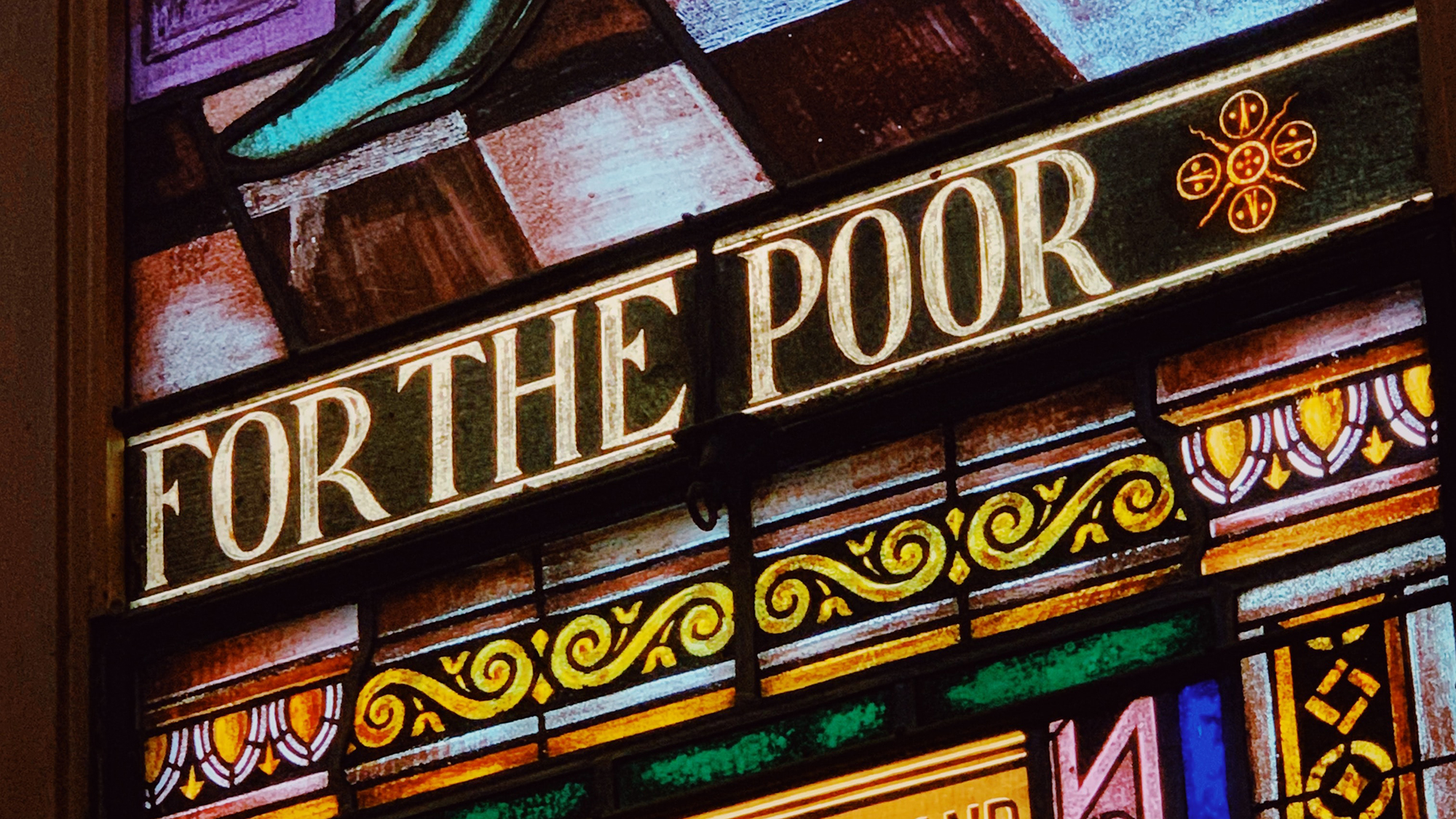Charity, Welfare, and the Common Good

Every society has people who, for some reason or another, are not in a position to provide for themselves, and there is a lot of controversy about how exactly a society should try to help those people.
(N.B. This is not about immigrants receiving welfare, nor is it about specific welfare programs. It is about whether Americans should favor charity or welfare in principle.)
The two broad positions in American political discourse on how to help those people are 1) that those who cannot provide for themselves should find help from private charity or 2) that the civil government should provide for those who cannot provide for themselves – or that there should be a welfare state.
Both positions have pros and cons.
The pros of private charity are that it is respectful of individual property, it reduces the possibility of graft and corruption by having a governmental middleman between donors and the organizations they donate to, and it allows taking care of the poor to be a morally virtuous action through a volitional act of selflessness. The cons include the fact that people are often collectively too stingy to sufficiently provide for all those who need help and there is imperfect information/organization to make sure those who need help can find those willing to give it
The pros of the second position, a welfare state, are that it gives the government power to make sure people collectively give enough and it streamlines the process of helping the poor find resources. The cons are that helping the poor through governmental aid conflicts with interest in individual property, it lessens the extent to which caring for the poor is a morally virtuous act, governmental aid has often been shown to be susceptible to abuse and corruption, welfare programs can sometimes exceed what a tax base is able to support, and the guarantee of governmental aid can incentivize laziness or financial recklessness in some cases.
Some societies are more resilient than others to some of these cons. For example, some of the Nordic states have extensive welfare programs but the cultures still encourage strong, productive work ethics. Some countries are able to draw on vast amounts of resources to pay for relatively lavish welfare states thereby avoiding excessively heavy tax burdens to fund their welfare states.
However, the United States as it is right now suffers from two problems that make a welfare state more unappealing than in other cases. Its people have not always proven especially scrupulous or industrious when receiving welfare, and the United States is running quite a large deficit while trying to hold together a fragile economy.
At the same time, however, the United States has shown that its individual citizens cannot be counted on to privately care for all the poor by themselves.
Despite corruption and abuse, there are still good and honest people who have fallen into hard times and need help. So what should the United States do? Preach rugged individualism and offer only an insufficient amount of charity for all those who need it? Or should the United States keep running up its debt and fostering a toxically unproductive sub-culture through a welfare program that many people have proven adept at exploiting?
Should a government worry about the poor at all? I would argue that it is commonly good for all people that the poor be provided for in society at a basic level. The first reason I believe that is because anybody, no matter how wealthy or secure today, could find themselves needing charity the next day. If there is not enough charity, they may well find themselves needing welfare or else starving to death. The second reason is that it benefits the economy for there to be as much demand as possible (not breaking windows just to remake them kind of demand, but legitimate demand that comes from people feeding and clothing themselves with private or public aid instead of starving to death).
Therefore, it is of interest to the government and those who run it for the sake of a good and happy society that the poor be provided for. So how should that happen? Private charity? Governmental welfare? Rugged individualism and the school of hard knocks? I say, all of the above.
Private charity should be encouraged as a matter of moral virtue. Governmental welfare should exist to supplement what private charity fails to provide. And recipients of charity and welfare should be encouraged through all means possible to find ways to provide for themselves.
Removing private charity will undoubtedly affect the quality of care for the poor and place an unbearable strain on an already overtaxed government. Removing welfare in hopes that private charity will pick up the slack without any guarantee that will actually happen would be foolish and many would likely suffer and starve as a result. And failing to encourage people to gradually move from being charity and welfare recipients to more self-sufficient members of society would be a violation of the dignity of the individual person as well as a violation of the common interest. Prudence demands that all three of those components be present in an effective plan to help the poor.
If you enjoyed this post, please consider sharing and subscribing!
Have a question or an idea for an article?
If there’s a subject you’ve been curious about and you want to see an article about it, just click the button below and shoot me a message!

K. William Huitt
K. William Huitt is currently an M.A. student in Western Michigan University’s philosophy program. He graduated from Hillsdale College in 2019 with a B.A. in philosophy and a minor in history. He has spoken at various Christian apologetics events and writes regularly about religious and political issues.
